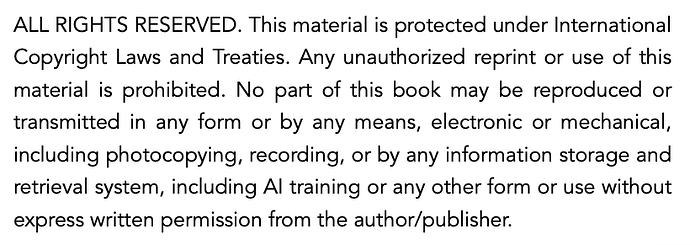@roberto Thanks for sharing your thoughts.
I think you & I are on the same page as far as ChatGPT goes (Like I said, I’m not a fan). It’s not a creative engine- it basically regurgitates what it has “learned” by reading (scraping) the text that is on the internet- which means that it has learned by reading text that was written before Generative AI, which includes copyrighted work. It puts stuff together and many times it’s just plain WRONG.
However, that said, isn’t it true that the way every writer learns, evolves, gets inspired and improves their craft is by reading others’ works?
For example, a while ago, here in Poland, there was some discussion that J.K. Rowling borrowed the idea for Harry Potter from a Polish book, written in 1933. “Kaytek the Wizard” (“Kajtuś Czarodziej” in Polish) was one of the lesser-known works of Janush Korczak, but it was one of the most famous and beloved Polish children books. (There is a moving coming out) Kaytek has been often compared to the hero of J.K. Rowling’s ‘Harry Potter’ series – although Korczak’s book was written more than 60 years before.
“Kaytek the Wizard” and J.K. Rowling’s “Harry Potter” series both delve into the world of magic and the adventures of young wizards. Both stories center on a young boy discovering his magical abilities. Kaytek and Harry both come into their powers unexpectedly and must navigate the complexities of these newfound abilities. Both Kaytek and Harry grapple with the implications of their powers. Kaytek deals with the immediate and often chaotic consequences of his unrestrained magical abilities, while Harry grapples with the darker elements of his power, especially as he learns more about his connection to Voldemort. Both Kaytek and Harry feel the weight of being different from others. While Kaytek’s struggles arise primarily from the misuse of his powers, Harry’s stem from his status as “The Boy Who Lived” and the attention, both positive and negative, that it brings. Finally, even though the school setting is central in the Harry Potter series (with Hogwarts), and only a part of “Kaytek the Wizard”, both narratives explore the protagonists’ interactions with peers, teachers, and school challenges.
In essence, both “Kaytek the Wizard” and the “Harry Potter” series share themes related to magic, growth, and morality, but are definitely their own distinct works.
Was JK Rowling inspired by “Kaytek the Wizard” & that’s why she wrote Harry Potter? We can only speculate, as many people have done, here in Poland.
However, even if she had been? Would it be so bad?
The point is that the main legitimate argument the writers might have is that AI didn’t pay for or legally acquire the original source material, or didn’t properly cite the sources it used. However, when something inspires a writer, how should that be noted?
As much as I dislike ChatGPT, generative AI is doing what human writers do, drawing inspiration from existing works. The difference is in the commercial exploitation of that derived content.
However, when we take the case of Harry Potter & Kaytek the Wizard, it’s clear that the book which might have been inspired by the original Polish material, is the one which was a commercial success.
![]()

